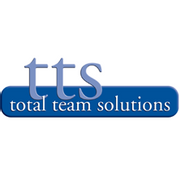EMPLOYMENT TRENDS - THE ALTERNATIVE WORKFORCE

With unemployment at historic lows, more and more companies are having difficulty finding qualified workers to fill open positions. And this issue is not just in the United States as 45% of employers globally have stated that they are having these issues. To fill these positions, companies are increasingly using the Alternative Workforce. They go by many names: freelancers, contract workers, etc. However, in employment terms they are independent contractors.
The main reason for this is the major evolution of the workforce. Baby boomers are retiring in record numbers and they are being replaced by millennials who do not want the traditional work environment. They want flexible hours, the ability to work remotely, frequent feedback on their projects and a greater work life balance. When traditional jobs do not accommodate these requests, they seek to work as independent contractors so they can better manage their work around their personal life, whereas previous generations did the opposite. Then you also have the retirees who come back into the work force and only want to work part time on selected projects that they can accommodate without infringing on their retirement plans.
While the technology industry has heavily utilized contract workers for years, other industries have used contractors mostly on a temporary basis to fill specific needs. Going forward, however, employers will need to develop plans to use them strategically as a long term part of their work force. This will not be as easy as it sounds though. There are still IRS guidelines that must be followed for properly classifying workers between employees and contractors. Then you will need to integrate them into your workforce with a fine balance to make them feel welcome and respected without alienating actual employees.
Navigating the Alternative Workforce has never been easy, but soon it will become an necessity most companies who will have little experience or knowledge on how to do it. That is where Total Team Solutions can help. As a full service Human Resource Outsourcing (HRO) firm we have the knowledge and experience to guide our clients through this process to have an effectively balanced workforce while avoiding the potential tax pitfalls that many companies face. For more information on this and other human resource questions that you may have, contact John Morlock at jmorlock@ttspro.com or call him at 800-836-9678.
About the Business
Have a question? Ask the experts!
Send your question

